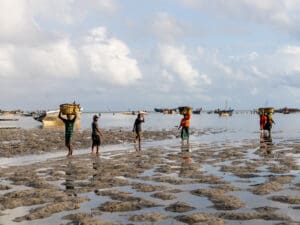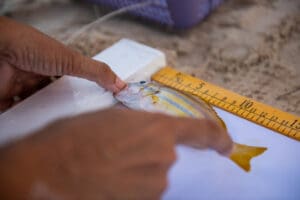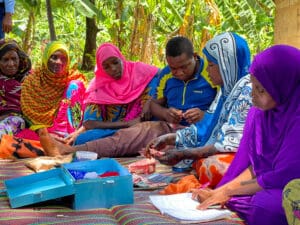
Putting nutrition at the heart of small-scale fisheries
We understand that improving nutrition goes beyond food availability—it requires access to diverse, nutrient-rich foods, alongside the conditions that support health and well-being.
Malnutrition in coastal communities is shaped by multiple, interlinked factors: from limited access to fish and unequal gender dynamics, to care practices, health services, and safe water and sanitation. That’s why we embrace the concept of nutrition security—recognising the full range of influences on what people eat and how they live.
Our approach is grounded in four key priorities:

Improving access to fish for local consumption
Supporting community-led initiatives that prioritise household nutrition and methods to reduce loss and wastage of catch.

Elevating the role of community fisheries in national food systems
Working to integrate small-scale fisheries into local, national, and global food and nutrition security agendas.

Advancing gender equity in food systems
Ensuring women have equal access to fish, decision-making, and benefits across the fisheries value chain recognising their central role in food provision and nutrition.

Promoting nutrition-sensitive fisheries management
Encouraging management decisions that consider ecological sustainability alongside economic and nutrition outcomes.















